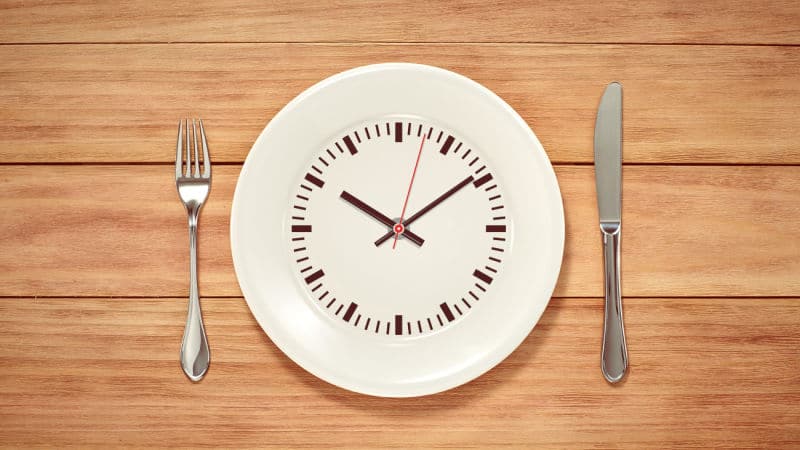If there’s one resounding cry I’ve heard in all my years helping people get in shape, it’s this:
“Yuri, I just can’t lose weight!”
It’s such a sad thing to hear, especially because I know it’s not true.
Unfortunately, the common belief is that we need to punish ourselves with exercise and a boring diet to get in shape, without addressing all of the other factors that made us gain weight in the first place.
For this reason, I want to share three key things you can do to help you along your weight loss journey. They’re techniques that go beyond the basics of diet and exercise to really help you mold your body into a fat burning machine.
Interestingly enough, we’re not going to talk about exercise, even though it can definitely help you and should be part of your routine. Instead, we’re going to talk about three often-overlooked concepts that can really help you melt the pounds off.
I talk about these 3 concepts in greater depth in my latest book The All-Day Fat Burning Diet. For now however, you can get started with these useful tips.
3 Legitimate Ways to Lose Weight… Even When You Can’t
1. Staggering Your Calories
Like most people, you’re probably quite used to the idea that you need to eat three square meals a day to properly nourish yourself. If you’re trying to lose weight however, this seemingly harmless manner of eating can actually get in the way of your goals. Why is this the case?
Let’s take a look back to our Paleolithic ancestors. When they first walked the Earth they didn’t have a Starbucks or a Burger King drive-thru window to go to. They didn’t even have a supermarket or a refrigerator.
As such, they went through periods of eating and then not eating. They would catch something and eat it, followed by a few days of unsuccessful hunts. They may also have gone through periods where it was very cold and the plants they were used to harvesting were frozen and therefore inedible.
It sounds brutal, but that’s how our physiology has evolved. Even to this day, we’re working on the same operating system. We haven’t evolved at all physiologically from when we first walked the planet.
Contrast that with how we eat today, and the conventional fitness advice that you need to eat every two to three hours. Here’s the problem: when you eat all the time, you don’t give your body a breather.
Consider how this affects your blood sugar, which is a big problem for many people as it contributes to obesity and even diabetes.
How does your blood sugar get elevated? It elevates when we eat, and predominately when we eat carbohydrates and also protein. If you’re always eating, you’re constantly keeping your blood sugar at a slightly higher than normal position.
The problem in this case is that insulin — the hormone that removes that sugar from the blood and stores it in your muscle, liver, and fat cells — is constantly elevated.
That creates an even bigger problem because insulin leads to inflammation, and any time you have inflammation, you’re going to gain weight or develop an inability to lose weight.
By sometimes eating less or sometimes not at all, you actually help regulate your blood sugar a lot more effectively, as well as a lot of other hormones.
How should you be eating then?
The key is to eat when you truly need to, not for some arbitrary reason such as a craving or even a habitual meal time. I’m going to help you remember this with a simple rhyme I like to use:
Some days yes, some days no, some days high, some days low.
Think about it like this: on Sundays, enjoy as much food as you want. Naturally, on Monday — if you’re paying attention to your body — you might not feel like eating as much.
Some days you actually might not feel like eating at all, and that’s fine too. In fact, 1-day fasts such as this are very beneficial, but that’s a topic for another day. Just remember this: if you’re not hungry on any given day (trust me, it’s possible) then don’t eat.
The guiding principle here is really to eat when you’re hungry and stop when you’re full. It’s a simple rule that can make a world of difference in your weight loss efforts.
Studies show it doesn’t matter if you have five or six meals a day versus two meals a day. As long as total number of calories ingested are the same, there is no impact on our metabolism. Your metabolism is not going to shut down.
[Related: The #1 Cause of a Slow Metabolism]
What I’m not suggesting here, unlike other fitness guides, are cheat days on which you have beer and pizza and hamburgers and French fries and ice cream.
Even though this notion has become quite popular, I don’t believe it’s a sustainable or advisable manner of eating — even if for only one day a week — as it can lead to cravings, addictions, and very bad eating habits.
Instead, I’m encouraging you to eat real, healthy, whole foods but in higher and lower quantities throughout the week to mimic the way your body naturally works. You can also try fasting for one day a week to boost your metabolism and use the breakdown of your stored fat as your primary energy source.
Eating like this has a world of benefits, specifically when it comes to leptin, the hormone that lets our brain know when to stop eating. Constant eating can sever the brain’s communication with leptin, so we eventually stop getting the message to stop eating. It’s quite sneaky.
2. Sleep on It
The second method that can help you lose weight even when you can’t is actually pretty easy — simply get a lot of sleep.
This is a topic I’m very passionate about — as you’ll eventually see in my book — as proper sleep is fundamental to maintaining a healthy lifestyle and especially a healthy weight.
There are plenty of studies which prove this, but for now, think about this: sleep has a very direct relationship with two hunger hormones: leptin and ghrelin. Leptin, as I just mentioned, tells your brain “I’m full”; ghrelin does the opposite and says “I’m hungry.”
When you don’t sleep enough—and the average we’re looking for is about seven to nine hours a night of good-quality sleep—or get poor quality sleep, what ends up happening is your ghrelin levels go up and your leptin levels go down.
That’s right — not sleeping enough can turn you into a ravenous beast.
The other thing that happens is this: sleep deprivation is a stress on your body, so not only are you eating more than usual, your levels of the stress hormone cortisol tend to go up as well. When we have high levels of cortisol, what does the body do? It goes into protective mode and stores fat. Crazy, right?
The best way to fight this is to get to bed early as often as you can, and create the kind of environment that promotes good sleep: a cold, dark, quiet room.
This should help you get the sleep you need and prime your body for weight loss, but I must warn you: getting too much sleep can be harmful as well. In fact, a lot of research shows that regularly getting more than nine hours of sleep a night triggers a very big risk factor for early mortality, so try to keep your sleepy time in the safe range.
3. Eat More Carbs
Your eyes aren’t deceiving you: I want you to eat more carbs.
In fact, let me put an asterisk on this.
It is indeed true that there are times when eating fewer carbs is very beneficial — it’s actually part of my five-day food-cycling formula in The All-Day Fat-Burning Diet—but eating carbohydrates is actually really important, especially for women, and can actually help you lose weight.
It’s so counterintuitive, right?
We’ve all been led to believe that carbs are the devil by diet magazines and popular trends, which is why the paleo movement has taken off as it has.
The thing is, carbs are not evil. Mind you, I’m not talking about breads and pastas and cereals, although you can have those in their gluten-free form. What I’m talking about are healthy carbs such as fruits, starchy vegetables, and root vegetables—carrots, beets, sweet potatoes and other stuff like that.
[Related: 4 Good Carbs for a Flat Belly]
The reason they’re so important, especially for weight loss, is that they keep your thyroid cranking.
A lot of women have problems with hypothyroidism, which is low thyroid, and studies show that when we decrease our carb intake, our levels of active thyroid (also known as T3) plummet. That’s not good because when that happens, your metabolism plummets as well, thus stalling your weight loss.
That said, I don’t want you to go pigging out on as many carbs as you can, nor do I want you to worry about measuring grams and stuff like that. If you are going to eat your carbs, have a moderate amount later in the day. The formula you should be using is to start your day with protein and end it with carbohydrates.
When Arnold Schwarzenegger was into body building way back in the day, this practice came to be known as carb backloading.
In fact, it’s still popular in the body building community. That’s because it’s tremendously helpful, and can even help you sleep better thanks to carbohydrates being a precursor to melatonin, the hormone that helps you sleep.
People think about turkey inducing sleep because it contains tryptophan—an amino acid which stimulates the neurotransmitter serotonin, which in turn triggers melatonin — but the reality is that turkey has less of it than chicken does.
The real precursors to melatonin via serotonin are carbohydrates, so having them later in the day can actually help prepare your body for a good night of sleep. Cortisol levels tend to decrease later in the evening as well, so this can relax and ready you for bed as well.
As you can see, carb backloading flows really well with our natural circadian rhythm, making it a really good habit to adopt.
Enjoy This Article?
Did you enjoy these weight loss tips? If so, you might also like my new book – The All-Day Fat Burning Diet. In it, I show you exactly how to reset your metabolism so you can lose up to 5 pounds per week. Click here to learn more.








